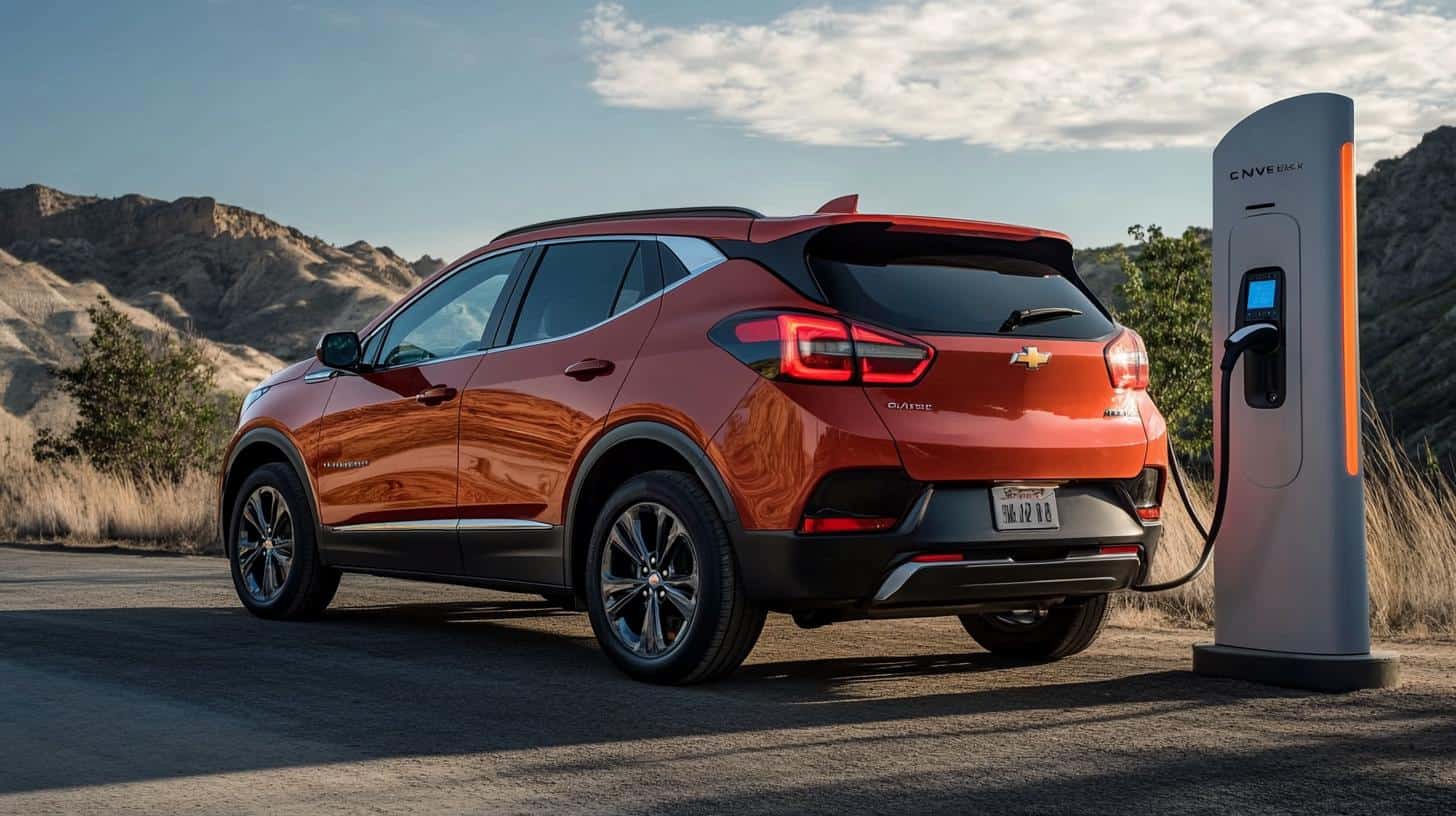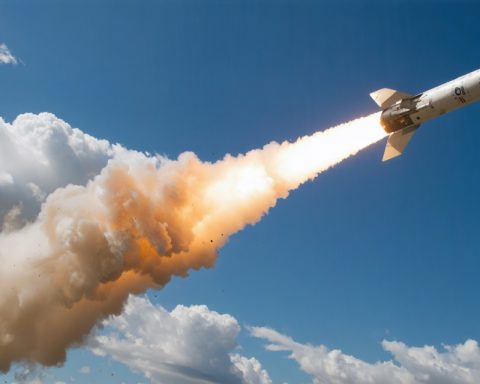In a bold move to enhance its electric vehicle (EV) production capabilities, General Motors (GM) has announced a substantial investment of $625 million into a domestic lithium mining project in Nevada, USA. Collaborating with Lithium Americas Corp., GM will form a joint venture to develop the Thacker Pass site in Humboldt County.
Investment Details and Strategic Goals
This investment will be split into a $430 million direct payment and an additional $195 million in credit. This financial structuring will unlock a critical loan of $2.3 billion from the Department of Energy, specifically aimed at developing the lithium extraction project. A senior executive from GM explained that sourcing lithium domestically will help manage costs, bring value to customers and investors, and create jobs in the region.
Lithium Americas’ leadership highlighted the strategic partnership with GM as a beneficial collaboration, emphasizing the importance of GM’s backing in securing the substantial DOE loan. This investment signifies GM’s commitment to reducing reliance on foreign lithium sources, particularly from China, which currently dominates the global market.
Impact on GM’s EV Strategy
Globally, the demand for lithium is soaring as it is a crucial component of EV batteries. GM’s recent financial maneuvers reflect its deepening commitment to bolstering its domestic supply chain and complying with new regulatory policies that favor US-based sourcing.
Continuing its EV expansion, GM aims to produce 200,000 electric vehicles this year, a target adjusted to reflect changing market dynamics. Their ongoing efforts to capture a larger share of the EV market are evident, with over 50% of new EV customers reportedly being first-time GM buyers.
Looking ahead, GM plans to provide further updates on its EV production strategy and success in upcoming financial reports.
The Rise of Domestic Lithium Mining: A Game Changer for Local Economies and the EV Market
In recent years, the quest for sustainable and ethical sourcing of lithium has reached a fever pitch, driven by the burgeoning electric vehicle (EV) market. The recent $625 million investment by General Motors (GM) into a lithium mining project in Nevada marks a significant milestone not only for the company but also for the local and broader economic landscapes. As GM partners with Lithium Americas Corp. to develop the Thacker Pass site, this strategic move has far-reaching implications for people, communities, and entire countries.
Revitalizing Local Economies
This ambitious project promises to breathe new life into Nevada’s economy, particularly in Humboldt County. The initiative is expected to create hundreds of jobs, driving economic development in a region that heavily relies on mining. By committing to domestic resources, GM sets a precedent for other corporations, encouraging similar investment in American soil. This shift could significantly reduce unemployment rates in these areas, foster local talent, and contribute to the socio-economic upliftment of entire communities.
Strategic National Benefits
For the United States, the Thacker Pass initiative represents a crucial step towards energy independence. Historically, the global lithium supply chain has been dominated by a handful of countries, with China leading the charge. By establishing a robust domestic supply, the US can mitigate risks associated with international supply chain disruptions and diminishing foreign dependence. This move aligns with national interests and legislative policies that seek to prioritize local resources and industries, positioning the US as a formidable player in the global lithium market.
Environmental and Ethical Considerations
A critical consideration in mining projects is the environmental impact. Companies investing in domestic extraction are under increasing scrutiny to follow stringent environmental regulations. The Thacker Pass project, aligning with GM’s sustainability policies, will likely incorporate cutting-edge technologies to minimize ecological disruption, setting a benchmark for responsible mining practices globally. Ethical sourcing not only mitigates environmental degradation but also counters the negative social implications often associated with overseas mining operations, such as poor labor conditions and inadequate safety protocols.
Interesting Industry Dynamics
One intriguing aspect of this development is how it alters the dynamics within the auto industry. By sourcing lithium locally, GM gains a significant competitive advantage over other automakers still reliant on foreign suppliers. Access to a domestic supply chain can lead to cost reductions, shorter supply lines, and increased production capabilities—all crucial factors as the company aims to produce 200,000 EVs annually.
A fascinating point is how this move aligns with consumer preferences. Recent statistics show that more than 50% of new EV buyers are first-time GM customers, signaling a shift in brand loyalty and market trends. This change demonstrates an increased consumer awareness and preference for environmentally responsible brands, providing GM with a golden opportunity to further capture market share.
Controversies and Debates
Despite the potential benefits, the project is not without controversy. Environmental groups express concerns about the ecological impact, particularly on local wildlife and water resources. There are also discussions on land rights, as indigenous groups and local communities voice apprehensions about the project’s implications. Addressing these controversies with transparency and community involvement will be crucial for GM and Lithium Americas Corp.
In conclusion, GM’s investment in Nevada’s lithium mining project is a landmark moment that could redefine not just the company’s trajectory but also catalyze positive changes in local and global contexts. As the world moves towards sustainability, similar initiatives will likely emerge, reshaping industries and societies. For more information on GM’s initiative and its broader goals, visit General Motors and Lithium Americas Corp..
The article has been updated: 2024-11-07 00:56
Here are some suggested related links:
1. General Motors – Explore GM’s initiatives, news, and updates on their electric vehicle advancements and sustainable practices.
2. Lithium Today – A resource for the latest news and insights on lithium mining, development, and market trends essential to the EV industry.
3. U.S. Department of Energy – Discover government initiatives and research on energy, including advancements in electric vehicles and lithium battery technologies.
4. Forbes – Stay informed with in-depth articles on business trends, including investments in electric vehicles and the lithium supply chain.
5. Reuters – Get the latest news highlights and analyses on the automotive sector, with a focus on electric vehicles and associated industries.
6. Bloomberg – Comprehensive financial news and data, providing coverage of investments and advancements in lithium mining and the EV market.
7. Wired – A leading publication that covers the intersection of technology and culture, including innovations in electric vehicles and sustainable practices.
8. Autoweek – A magazine dedicated to everything automotive, featuring news on EV manufacturers and sustainable transportation developments.
9. ScienceDirect – Access a wealth of research articles on the science of lithium extraction and its applications in electric vehicle technologies.
10. NPR – National Public Radio provides up-to-date news and discussions on electric vehicle advancements and the environmental impacts of lithium mining.
The article has been updated: 2024-11-07 15:44
What recent steps has GM taken to enhance its electric vehicle strategy through lithium mining investments in the US?
General Motors (GM) has significantly increased its commitment to electric vehicles (EVs) by investing heavily in lithium mining operations in the United States. This move aims to secure a stable supply of lithium, a critical component for EV batteries, in order to boost its production capabilities and address the growing demand for electric vehicles. By focusing on domestic lithium sources, GM intends to reduce reliance on foreign supply chains, enhance sustainability practices, and support local economies. This investment is a crucial part of GM’s broader strategy to ramp up EV production and achieve its goal of an all-electric future.






